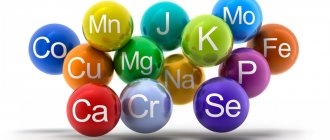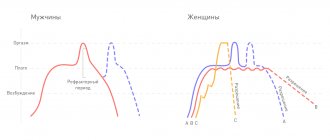Why is zinc needed in a woman’s body?
It takes part in the regulation of brain activity and strengthening of nerve fibers.
Takes direct part in the synthesis of some hormones and neuronal mediators. One of which is serotonin. Zinc is involved in the production of serotonin, the hormone of happiness, which provides us with an excellent mood and positive emotions. Which in turn determines the psychological status, reduces depressive readiness, and increases resistance to stress. For this purpose, zinc supplements for women are used.
Hormonal balance is also important. This is associated with normal gestation, prevention of miscarriages and premature births.
In addition, this mineral takes an active part in the regulation of reproductive function. Thanks to its sufficient content, the absence of PMS symptoms, a calm pregnancy, and the absence of premature menopause are ensured.
The necessary zinc content ensures good vision. This is due to the participation of the trace element in the metabolism of nerve fibers, the synthesis of neurotransmitters and the normal functioning of the macula. Zinc maintains visual acuity and prevents myopia.
Our mineral regulates defenses by promoting the production of antibodies and blood leukocytes, which supports stable immunity. With zinc deficiency, almost the entire immune system suffers.
Thanks to the normal zinc content, the fairer sex has well-groomed and strong hair and nails. Signs of zinc deficiency in women: hair splits and falls out, loses its usual shine, nails become brittle, white spots appear, and flake.
Due to participation in lipid metabolism, beautiful skin is formed. Zinc reduces the manifestations of allergic skin reactions, acne, reduces dry skin, prevents early wrinkles, and regulates sebum secretion of the skin. To eliminate these clinical manifestations, dietary supplements for women are used. The first place among them is zincite.
What vitamins are best for hair and nails
First of all, these are vitamins A, E, C, F. They work in combination with selenium and zinc.
Complex drugs are prescribed only after examining laboratory parameters to ensure that there is a real deficiency of this microelement, since similar symptoms may occur with other deficiencies. The above compounds are good vitamins for hair, nails and skin for women. They participate in metabolism, contribute to the renewal of the surface layers of the epidermis, which stimulates rejuvenation and a beautiful appearance.
Where is zinc found?
Let's start with food.
The body receives most useful minerals from food. Vitamins with zinc for women are found in many foods: turkey, egg yolk, beef, seeds and nuts, buckwheat, seafood, oatmeal, bran, cheese, dairy products. If you clearly have a zinc deficiency, then vitamins for hair, nails and skin containing zinc, as well as dietary supplements for hair and nails, can come to your aid.
Plant and animal foods high in zinc
Zinc is found in many plant foods
:
- Pumpkin seeds - 7.6 mg per 100 g.
- Cashew nuts - 5.4 mg per 100 g.
- Sunflower seeds - 5 mg per 100 g.
- Pine nuts - 4.1 mg per 100 g.
- Almonds - 3.4 mg per 100 g.
- Pistachios - 2.2 mg per 100 g.
- Beans (cooked) - 4.1 mg per 1 cup.
- Lentils - 2.5 mg per 1 glass.
- Tofu - 1.6-4 mg per 1 glass.
- Rye flour - 6.4 mg per 1 cup.
- Coarse wheat flour - 3.6 mg per 1 cup.
- Oatmeal (cooked) - 1.2 mg per 1 cup.
- Rice (boiled) - 1.2 mg per 1 glass.
- Boiled wholemeal pasta - 1.3 mg per 1 cup.
Zinc in animal products:
- Lean ground beef - 10.2 mg per 100 g.
- Chicken liver (boiled) - 4 mg per 100 g.
- Turkey meat (boiled) - 3.1 mg per 100 g.
- Oysters - 74 mg.
- Roast beef - 7 mg.
- Alaskan (king) crab - 6.5 mg.
- Beef cutlet - 3 mg.
- Lobster - 3.4 mg.
- Pork chop - 2.9 mg.
- Yogurt - 1.3 mg. for packaging.
In addition to the quantitative content of zinc in foods, it is important how effectively the body absorbs zinc from various foods.
What helps and what hinders the absorption of zinc in the body?
Coffee and tea interfere with the absorption of zinc (due to the caffeine contained in these drinks), calcium and copper reduce the absorption of zinc in the body.
Vitamin B2 increases the availability of zinc for the body. Vitamin B6 reduces the excretion of zinc from the body in urine. But vitamin B9 does not combine with zinc. Vitamin B9 affects the transport of zinc in the body and vice versa.
We recommend
“How to take probiotics correctly to avoid side effects” Read more
It is recommended to soak grains, nuts, and seeds before consumption to improve the absorption of zinc:
Nausea and vomiting
Nausea and vomiting are usually side effects of zinc poisoning.
A review of 17 studies on the effectiveness of zinc supplements for treating colds found that zinc may shorten the duration of colds, but side effects were common. In fact, 46% of study participants reported nausea ().
Doses greater than 225 mg are emetic—meaning that vomiting is likely and can occur quickly. In one case, severe nausea and vomiting began 30 minutes after a single dose of 570 mg of zinc (,).
However, vomiting may occur at lower doses. In one six-week study, more than half of 47 healthy people who took 150 mg of zinc per day experienced nausea and vomiting ().
Although vomiting may help the body rid itself of toxic amounts of zinc, it may not be enough to prevent further complications.
If you have consumed toxic amounts of zinc, seek medical attention immediately.
Summary:
Nausea and vomiting are common and often immediate symptoms of zinc overdose.
Flu-like symptoms
Taking more zinc than the prescribed UL may cause flu-like symptoms such as fever, chills, cough, headache and fatigue ().
These symptoms occur in many conditions, including poisoning from other minerals. Therefore, diagnosing zinc overdose can be difficult.
Your doctor may need your detailed medical and dietary history, as well as blood tests to suspect mineral poisoning.
If you are taking supplements, be sure to tell your doctor.
Summary:
Flu-like symptoms can occur due to excess intake of several minerals, including zinc. Therefore, to ensure proper treatment, it is important to report all supplements you are taking to your healthcare provider.
Vitamin D (Calciferol)
This is a substance that is produced by the adrenal glands after exposure to ultraviolet B rays on the skin. Vitamin D is similar in structure to steroid hormones. It can accumulate in adipose tissue and therefore, before taking products with calciferol, it is necessary to take a blood test for its content in order to avoid an overdose.
There are 6 forms of vitamin D, but most often in food, medicine and vitamin complexes it is found in 2 forms - vitamin D2 and D3.
Preparations and complex products with vitamin D:
- Vitamin D3;
- Calcium D3 Nycomed Forte;
- Calcemin Advance No. 60;
- Vitamin D2;
- Aquavit D3;
- Decrystol D3;
- Calcium magnesium with vitamin D3.
Vitamin D: the benefits of the “sunshine vitamin”
Vitamin D3 (cholecalciferol) is considered the most effective of all forms of the substance in question. It is involved in the regulation of mineral metabolism, helps normalize blood clotting, and suppresses the growth and formation of cancer cells. Separately, the ability of this vitamin to ensure the growth and development of bone tissue is highlighted. Its deficiency leads to rickets.
Vitamin D3 has a significant effect on the body's immune function. Thus, this substance increases the motor (chemotaxis) and phagocytic function (capture and absorption of pathogens) of immune cells, which leads to a rapid reaction to a foreign body, for example, a virus or bacteria. However, it is important to note that in order for vitamin D to provide benefits, it must be taken in the recommended amount.
Daily value of vitamin D
Each age category is recommended to drink the vitamin in question in the following quantities:
- children under 1 year - 10 mcg;
- children from 1 year to 18 years - 15 mcg;
- adults 19 years and older - 15 mcg.
The maximum permissible dose that does not lead to negative consequences is 100 mcg.
Vitamin D overdose
It should be emphasized once again that the substance in question can accumulate in the body, so if it is taken in large quantities, it can lead to an overdose and have a toxic effect. Vitamin D functions like a steroid hormone. It is involved in signaling between cells, and if consumed excessively, this process can be disrupted.
Due to an overdose, the following reactions occur:
- constipation and problems with stool;
- weakness;
- hypercalcemia (increased levels of calcium in the blood) and kidney stones;
- renal failure;
- weight loss;
- nervous itching;
- heart rhythm problems;
- nausea;
- confusion and vomiting;
- vomit;
- stomach ache;
- feeling tired and dizzy.
Interaction with other substances and drugs
Hormonal drugs . This category of drugs includes contraception, glucocorticosteroids, and drugs for the treatment of the thyroid gland. Taking vitamin D may interfere with your body's ability to absorb these medications.
Anticonvulsant drugs . They increase the breakdown of vitamin D and reduce the rate of absorption of calcium into the blood.
Laxatives . Long-term use of strong laxatives leads to decreased absorption of vitamin D and calcium.
Diuretics . Taking these medications together with vitamin D can lead to hypercalcemia, which provokes urolithiasis in the kidneys.
Take vitamins in recommended dosages and do not combine them with the substances and drugs indicated in the text, so as not to harm your health.
Before you start taking vitamins and minerals, it is best to consult your doctor. Remember, an overdose of vitamins is unsafe!
In addition to vitamins to strengthen the immune system in winter, you can also drink Omega-3 dietary supplements. Read an informative article about 15 proven beneficial properties of Omega-3 dietary supplements .
Pharmacies sell medications with 3 different forms of vitamin D, but which one is the most effective? Find out from our new material which vitamin D to buy in pharmacies to protect yourself from viruses and colds .
Many people believe that a high dose of ascorbic acid can help fight colds. Read how right they are in the article about whether vitamin C improves immunity and whether a cold will go away if you take a shock dosage of ascorbic acid .
apteka24.ua is the first online pharmacy you can trust.
Reducing levels of “good” HDL cholesterol
"Good" HDL cholesterol reduces your risk of heart disease by removing cholesterol from your cells, thereby preventing the formation of artery-clogging cholesterol plaques.
For adults, health authorities recommend that HDL cholesterol levels be above 40 mg/dL. Low levels increase the risk of developing cardiovascular disease.
A review of several studies on zinc and cholesterol levels suggests that supplementing with more than 50 mg of zinc per day may lower your levels of “good” HDL cholesterol and have no effect on your “bad” LDL cholesterol (, , ).
The review also found that doses of 30 mg of zinc per day—lower than the zinc TDL—had no effect on HDL cholesterol when taken for up to 14 weeks ().
Although several factors influence cholesterol levels, these findings should be considered if you regularly take zinc supplements.
Summary:
Regularly consuming more than recommended levels of zinc can cause your levels of “good” HDL cholesterol to fall, which can increase your risk of developing heart disease.










